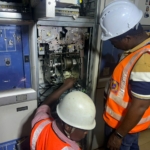
In recent days, multiple media outlets have reported that, the Producer Price Review Committee (PPRC) has concluded its deliberations on the farmgate price for cocoa for the forthcoming 2025/2026 crop season.
According to statements attributed to the Minister for Finance, the new price is expected to be officially announced before August 7, 2025. This impending announcement has generated considerable anticipation, particularly among cocoa farmers and key stakeholders within Ghana’s cocoa value chain.
Such heightened expectations are certainly not unfounded. Historically, cocoa pricing in Ghana has transcended its economic significance to become a central feature of partisan political discourse, a trend that persisted throughout the campaign period leading to the December 2024 general elections.
In that context, the current administration made explicit commitments regarding a minimum producer price not below 6,500cedis, widely interpreted by the farming community and the broader public as a political guarantee that a future NDC government would implement no less than the stated price level.
However, translating such political promises into policy is far more complex than electoral rhetoric may suggest.
The present realities within the cocoa sector, characterised by volatile international prices, fiscal constraints, and structural challenges, pose significant limitations on the government’s capacity to deliver on its pledge without compromising broader economic stability and some of the gains made in the implementation of the IMF backed Ghana Cocoa Board financial turnaround strategy.
Cocobod’s Financial Health and Current Market Dynamics
Although international cocoa prices have experienced a sharp increase in recent weeks, suggesting, from a basic market logic of buying and selling, that a corresponding rise in farmgate prices would be justified, the financial condition of Ghana’s cocoa sector regulator, the Ghana Cocoa Board (Cocobod), introduces a far more intricate policy dilemma.
The prevailing circumstances challenge the notion that price determination can be solely guided by market fundamentals such as global demand, supply, and price trends. Rather, any decision on producer pricing in the context of Ghana must be carefully weighed against the imperative of safeguarding the long-term sustainability of the sector.
Cocobod’s financial fragility has become a matter of significant concern. In the lead-up to Ghana’s engagement with the International Monetary Fund (IMF) under the current Extended Credit Facility, Cocobod was identified as one of the state-owned enterprises (SOEs) contributing heavily to the country’s unsustainable public debt profile.
The sector’s fiscal mismanagement, compounded by operational inefficiencies and structural imbalances, placed it at the center of broader macroeconomic vulnerabilities.
As a result, the IMF explicitly called for the development of a comprehensive financial turnaround strategy for Cocobod, aimed at restoring its solvency and ensuring its ability to operate effectively within the bounds of fiscal prudence.
In response, the government developed and submitted a detailed Cocobod Financial Turnaround Strategy, which outlines a series of sector-specific policy interventions intended to improve operational efficiency, reduce debt accumulation, and enhance financial transparency within the Board (Government of Ghana, 2024).
The strategy is currently under implementation and forms a key benchmark within Ghana’s broader IMF-supported economic recovery programme. Consequently, decisions regarding farmgate pricing must now align not only with market expectations and political promises but also with the binding financial and structural commitments embedded within this strategy.
Government Dilemma and Policy Pathways
The government faces a complex policy dilemma in determining the producer price of cocoa for the 2025/2026 crop season. While it may rationalise setting a price below the politically promised GHS 6,500 per 64kg bag, citing recent declines in global cocoa prices relative to when they made the promise, a strengthened Ghanaian cedi, and improved macroeconomic indicators such as declining inflation and reduced cost of living.
Indicative of an emerging narrative shift, the Ghana Cocoa Board (COCOBOD) has already published an article titled “Cocoa Produce Price in an Era of Cedi Appreciation” (COCOBOD, 2025).
This piece appears to function as a strategic communication instrument aimed at gradually tempering the expectations of cocoa farmers and stakeholders. By emphasising the cedi’s appreciation and other market dynamics as constraints on price increases, the publication suggests an institutional effort to justify a potential deviation from the promised price level.
However, while such macroeconomic arguments may hold merit from a technocratic standpoint, they are unlikely to resonate with cocoa farmers whose livelihoods are shaped more directly by producer prices than by broader fiscal indicators.
The disconnection between economic policy narratives and lived rural realities raises the risk of eroding trust among a politically significant constituency.
Cocoa farmers have traditionally constituted a critical voting bloc, and the current administration’s explicit commitment during the 2024 election cycle has created strong expectations of a substantial price increment.
The government is, therefore, positioned at a decisive policy juncture. On one hand, fulfilling its electoral promise would demonstrate political accountability and reinforce confidence among rural producers.
On the other hand, adhering to IMF-driven fiscal consolidation measures, particularly under the constraints of the Cocobod Financial Turnaround Strategy, may necessitate a more restrained pricing approach to avoid further exacerbating the Board’s debt burden.
Ultimately, any chosen path will not only signal the government’s prioritisation between political obligation and fiscal discipline, but will also carry lasting implications for economic credibility, political legitimacy, and the social stability of the cocoa sector, one of Ghana’s most critical export industries.
Policy Proposition: A Sustainable Path to Fair Cocoa Pricing in Ghana
Despite the complex policy and fiscal constraints facing the government, there remain viable pathways to ensuring that cocoa farmers receive fair and economically justifiable farmgate prices, without undermining the financial sustainability of the sector or the progress made under the ongoing implementation of the COCOBOD Financial Turnaround Strategy.
To balance the imperatives of fiscal prudence, political accountability, and sectoral sustainability, the following policy measures are proposed:
1. Adopt a Phased Producer Price Adjustment Framework: The government, through COCOBOD, should operationalise the Turnaround Strategy’s recommendation that at least 70% of the gross Free-On-Board (FOB) value of cocoa exports be allocated to farmers as the farmgate price, with price revisions conducted on a biennial basis. To meet the politically committed price of GH¢ 6,500 per 64kg bag in a fiscally responsible manner, a clearly communicated, phased pricing plan should be adopted. This could include:
- Phase 1: GH¢ 4,500 per 64kg bag for the 2025/2026 major crop season,
- Phase 2: GH¢ 5,500 per 64kg bag for the 2026 minor crop season, and
- Phase 3: GH¢ 6,500 per 64kg bag for the 2026/2027 major crop season.
Such a gradual adjustment, backed by transparent policy communication, would both meet stakeholder expectations and reduce fiscal shocks to COCOBOD’s balance sheet.
2. Undertake Immediate Structural and Functional Reforms at COCOBOD: As outlined in the Turnaround Strategy, a comprehensive review of COCOBOD’s institutional structure and operational functions must be prioritised.
Reducing administrative inefficiencies, eliminating redundant expenditures, and streamlining operations are critical steps toward reducing the Board’s financial burden and creating fiscal space for increased farmer remuneration.
3. Reconfigure Input Subsidy and Support Programmes: Current input support and subsidy regimes under COCOBOD have been widely criticised for inefficiencies, diversion, and corruption. A thorough evaluation and redesign of these programmes is essential.
Greater transparency, digital targeting, and performance-based input delivery mechanisms could ensure value for money and free up critical financial resources to be redirected into direct payments to farmers through improved producer prices.
Conclusion: Just Farmgate Price is a Strategic Necessity
If any cost is to be reduced, it must not be at the expense of the cocoa farmer. For decades, cocoa farmers have borne the brunt of underpricing, often receiving incomes below the cost of production. Now is the time to reverse that trajectory.
Paying a fair and economically grounded price to cocoa farmers is not a gesture of goodwill, it is a strategic imperative for sustaining farm-level investment, enhancing productivity, and securing the long-term viability of the sector.
Evidence consistently shows that when farmgate prices fall below the cost of production, farmers are unable to reinvest in their farms, leading to declining yields, degraded sustainability outcomes, and deepening rural poverty.
Fair pricing is therefore essential not only for farmer welfare but for the resilience of Ghana’s cocoa economy as a whole.
- President Commissions 36.5 Million Dollars Hospital In The Tain District
- You Will Not Go Free For Killing An Hard Working MP – Akufo-Addo To MP’s Killer
- I Will Lead You To Victory – Ato Forson Assures NDC Supporters
Visit Our Social Media for More




